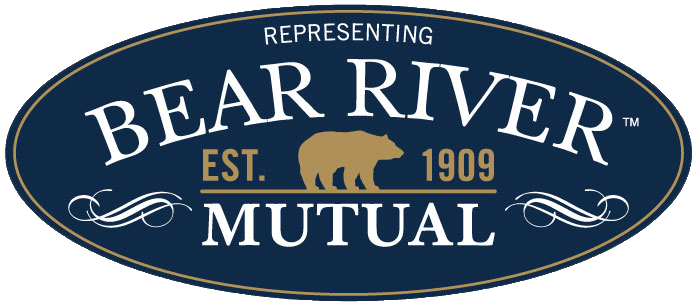The ins and outs of automobile insurance can feel overwhelming — but we are here to answer all of the commonly asked questions surrounding the topic.
Owning a car is a necessary part of life for many people in the United States, with more than 275 million registered vehicles. Great responsibility comes with owning and operating an automobile. But even the most responsible, aware, and careful drivers can find themselves in an accident.
Thankfully you can secure peace of mind and a financial safety net for yourself and your family: car insurance. In today’s article, we are taking a deep dive into the commonly asked questions about auto insurance.
Continue reading to learn more.
8 Commonly Asked Questions About Automobile Insurance
Q: What Is Automobile Insurance?
A: Automobile insurance is a contract between you and an appointed insurance company. You pay a monthly premium, and in return, they provide financial protection in the event of a car-related accident or property damage.
Q: Am I Legally Required to Have Automobile Insurance?
A: Car insurance laws vary from state to state. Forty-seven states require drivers and their vehicles to have some level of coverage before they can legally be on the road.
In Utah, all drivers must have auto insurance. Moreover, the law requires all motorists to carry proof of insurance in their cars at all times. Failure to provide proof of insurance is a Class B misdemeanor. This could result in a $400 or more fine for a first offense and $1,000 for any subsequent violation within three years.
Q: How Much Automobile Insurance Do I Need?
A: Most states have outlined a minimum liability insurance every driver needs. You’ll also likely need to provide proof of insurance to register your car or renew your license.
In the event of a wreck, the minimum liability insurance required by your state may not be enough to cover the damages caused by an accident. In this situation, the driver responsible for the accident may be required to pay any additional expenses out of pocket.
To determine how much auto insurance you need, consider the following:
- The type of vehicle you drive
- The actual value of your assets
- When you drive
- How you drive
- Who is in the car with you
Q: What Does Automobile Insurance Cover?
A: Car insurance can be broken down into several categories; each covers various aspects of your risk as a driver. Here is a brief overview of the most common categories:
- Liability Coverage: Liability coverage pays for property damage, repairs, and medical costs for injuries suffered by others in the car. It also covers other expenses related to an at-fault wreck, like legal fees.
- Collision Coverage: If you hit another driver or an object, collision coverage pays to repair your vehicle’s damage once you pay your deductible.
- Comprehensive Coverage: Comprehensive coverage, also called “other than collision,” pays for losses to your car if it suffers damage from something outside of an accident, like a tree branch falling on your vehicle.
- Uninsured/underinsured Motorist Coverage: This pays for property damage and injuries you suffer in a wreck when the at-fault driver either doesn’t have enough insurance coverage to pay for your injuries and vehicle damage or is uninsured.
You can buy additional policies to cover things like rental vehicles, medical expenses, and roadside assistance if you’d like.
Q: Can You Tell Me More About At-Fault vs. No-Fault Laws?
A: When you get into a wreck with another driver, your auto insurance policy can step in to help protect you and your finances from the aftermath. However, settling insurance claims depends on your state’s fault laws.
The at-fault driver’s bodily injury liability insurance coverage will pay for the other driver’s hospital bills in an at-fault state. In contrast, your injury protection (PIP) insurance covers your medical bills in a no-fault state.
Understanding how insurance claims are settled in your state can help you feel more comfortable with the process if you are involved in an accident.
As it stands now, 12 states and Puerto Rico follow no-fault insurance laws, with the remaining 38 states and Washington, D.C. being at-fault states. Utah is a no-fault state.
Q: Why Is Automobile Insurance Important?
A: Whether you are out on the open road or your car is parked, there is a considerable risk of an accident that could result in your vehicle becoming damaged. Car insurance provides a welcome safety net when drivers make mistakes or something unexpected happens.
As the vehicle operator, you are responsible for all injuries and damage you cause to others while operating your car. If you are in a wreck with an uninsured driver, you’ll be responsible for covering your injury and damages. These costs can add up! The more car insurance coverage you have, the less you will pay out of pocket.
Q: How do I Find the Best Automobile Insurance for Myself?
A: Finding the best auto insurance can undoubtedly feel overwhelming and stressful. Most people opt to find a trusted and reputable agent in their area to help match you with the best coverage for you, your family, and your vehicle. A knowledgeable agent should be able to help you every step of the way to select a car insurance policy that makes the most sense for you.
Q: Where is the Best Place to Get Automobile Insurance?
A: That’s easy: Bear River Mutual Insurance!
If you are looking to invest in automobile insurance or another type of insurance, such as renters, homeowners, or businesses, contact the experts at Bear River Mutual Insurance. Our team of professionals is here to get you the best policy that meets the needs of you and your loved ones within your budget, giving you the peace of mind we all deserve. Contact us today to get your fast and free quote if you live in Provo, Orem, Salt Lake City, or a surrounding area.




